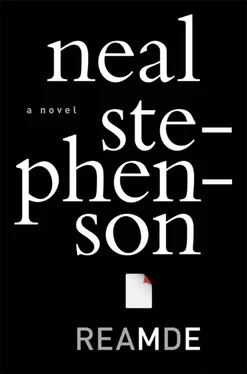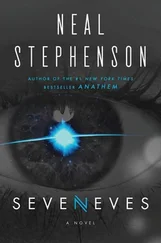Peter was already nodding, confident that he knew this material, so Csongor finished the story for Zula’s benefit. “However, then the waiter swipes the card through the illegitimate reader in his pocket and makes a copy of the credit card data. The reader stores the data of many such cards. These data are aggregated and then sold on the black market.”
“So you got involved in that racket,” Peter said.
Csongor hesitated, not completely happy with the phrasing. “I took a job to program the firmware of a device. I was perhaps naive. It became clear to me only slowly what the device was used for.”
Peter let out a tiny snort. Csongor caught it immediately, thought about it, finally shrugged his huge shoulders and met Zula’s eye. As if she had somehow been named the judge of all such matters. “So I am just the latest in a very long line of Hungarians being talked into extremely stupid adventures by Germans, Russians, whatever. But it took me into this culture”—he shifted his gaze onto Peter, and Zula understood that he was now talking about international hacker culture—” where I was cool. Respected. Powerful drugs for a teenager.”
Peter did not meet Csongor’s gaze, and so Csongor went on as if the point had been conceded.
“Then later the same client came back to me with a new problem: there was too much data. Thousands of these machines had been mass-produced and distributed to waiters, not only in Hungary but all over Europe, and the data storage problem was becoming an issue, there were security problems, and so on. Could I help with this? And by the way, if the answer was no, perhaps they would report me to the police or cause other trouble for me. So I became a systems programmer. I built the systems these people needed. And after that, they needed someone to keep the system running in a secure and reliable way. So, over years, I morphed into a kind of mostly freelance systems administrator. I run servers, set up email systems, websites, wikis—”
“I know what a systems administrator is,” Peter said.
“My clientele are small companies or sole proprietors who are not big enough to hire someone just for this purpose. But my specialty, my niche, is situations where privacy and security are very important.”
“You work for gangsters,” Peter said.
“As do you, Peter.”
“This part of it is boring for me,” Zula said.
Csongor turned to look at her, his face a mixture of curiosity and regret. “Systems administration?”
Zula shook her head and made a gesture of two fists banging into each other, looking between Peter and Csongor. They seemed to take her point. Zula continued, “So I’ll bet Wallace contacted you and said ‘I need secure email, no questions asked.’”
“Exactly,” Csongor said. “I knew he worked for Ivanov. But. A Scottish accountant in Vancouver. What could possibly go wrong?” He chuckled and slapped his thigh, hoping that the others would join him in a little round of ironic laughter, but Peter was having none of it.
“Who is Ivanov? What did Wallace do for him?” Peter asked.
Csongor leaned back in his seat, suddenly feeling tired, and rubbed his eyes. “I had been working for these people for six years before I ever met Ivanov. Then he showed up in Budapest one day and took me to a hockey game and dinner, and then it was obvious who was really the boss.”
“But it was too late then.”
“Yes, I already knew too much and so on. In Russia there are a few such groups as the one that Ivanov is part of. Some are ethnic Russians. Ivanov belongs to one of those. Others are Chechens or Uzbeks or what have you. The Russian ones are very old, dating back to perhaps Ivan the Terrible. If you are a member of such a group, you live your whole life in it.”
Peter snorted. “That’s not saying much.”
“I beg your pardon?”
“If you’re a mobster, your life expectancy is what, thirty years?”
“On the contrary,” Csongor said. “Precisely because so many of their activities are routine and boring, many of the members die of old age. Which is the problem.”
“What problem?”
“It’s a problem for Ivanov, that is.”
“How so?”
“It has always been the practice for groups like this to have a fund, called the obshchak, which is a common pool of money that they use for all kinds of purposes, including benefits.”
“ Benefits!? Are you telling me that Russian mobsters get dental !?”
Csongor shrugged. “I don’t see why you are so surprised. A man who gets a toothache must have it seen to, no matter what he does for a living. In the system of these groups, the money for the dentist is paid out of the obshchak. When a member reaches the age of retirement, the obshchak takes care of him. And, of course, the obshchak is also used to fund…”—and Csongor looked around at the plane—” operations.”
“So we are guests of the obshchak right now,” Peter said.
“Yes, but I do not think that we are authorized guests,” Csongor returned.
“What do you mean?”
“I think that Ivanov is basically stealing the funds that are being used to rent this plane,” Csongor said. “Because this is not how these guys operate. They are extremely conservative investors for the most part. They don’t do crazy shit like this.”
Peter snorted.
Zula said, “A pension fund is a pension fund.”
“Precisely,” said Csongor, turning to her. “Most of the obshchak is invested in proper financial instruments. Wallace is a, here my vocabulary fails me—”
“Money manager?” Zula guessed.
“He is one who manages the money managers,” Csongor said. “He distributes his clients’ funds among several different professional managers, evaluates their performance, moves money from one account to another as necessary.”
“That’s not all he does,” Peter said. “When I met him, he was buying stolen credit card numbers from me.”
“This is unusual for Wallace.”
“I sort of got that impression.”
“Wallace’s boss is— was —Ivanov. I believe that Ivanov made some mistakes. Of the money he controlled, some was supposed to be invested legitimately. This he entrusted to Wallace. Other money was put into schemes that we would call organized crime. I can only guess, but I think that Ivanov got into trouble.”
“Some of his schemes failed,” Zula said.
“Or perhaps he simply embezzled from the obshchak,” Csongor said. “Maybe he was not the right man to be managing this money.”
Peter laughed.
Csongor allowed himself the barest trace of a wry smile and continued: “The quarterly numbers were looking not so good. He knew he was in trouble, needed to take some risks in order to bring those numbers up. Guys like him are maybe addicted to taking risks anyway. He and Wallace set up some complicated transactions and at the same time invested some of the money Wallace controlled in schemes such as your stolen credit card numbers. When Wallace lost all his files—”
“The house of cards collapsed,” Zula said.
“Yes.”
“So why haven’t they come down on Ivanov yet?”
“They don’t know,” Csongor said. “Ivanov has a long leash and has moved with too great speed. By the time his bosses know that something strange is going on, we’ll be in Xiamen.”
“So we are going to Xiamen,” Zula said.
“This is what I was told,” Csongor said. “To find the Troll.”
“Are they going to kill us?”
Csongor thought about it rather too long for Zula’s taste. “I think this depends on Sokolov.”
“What is the deal with him?”
“Another private contractor, like Wallace. Except that he does security.”
Читать дальше





